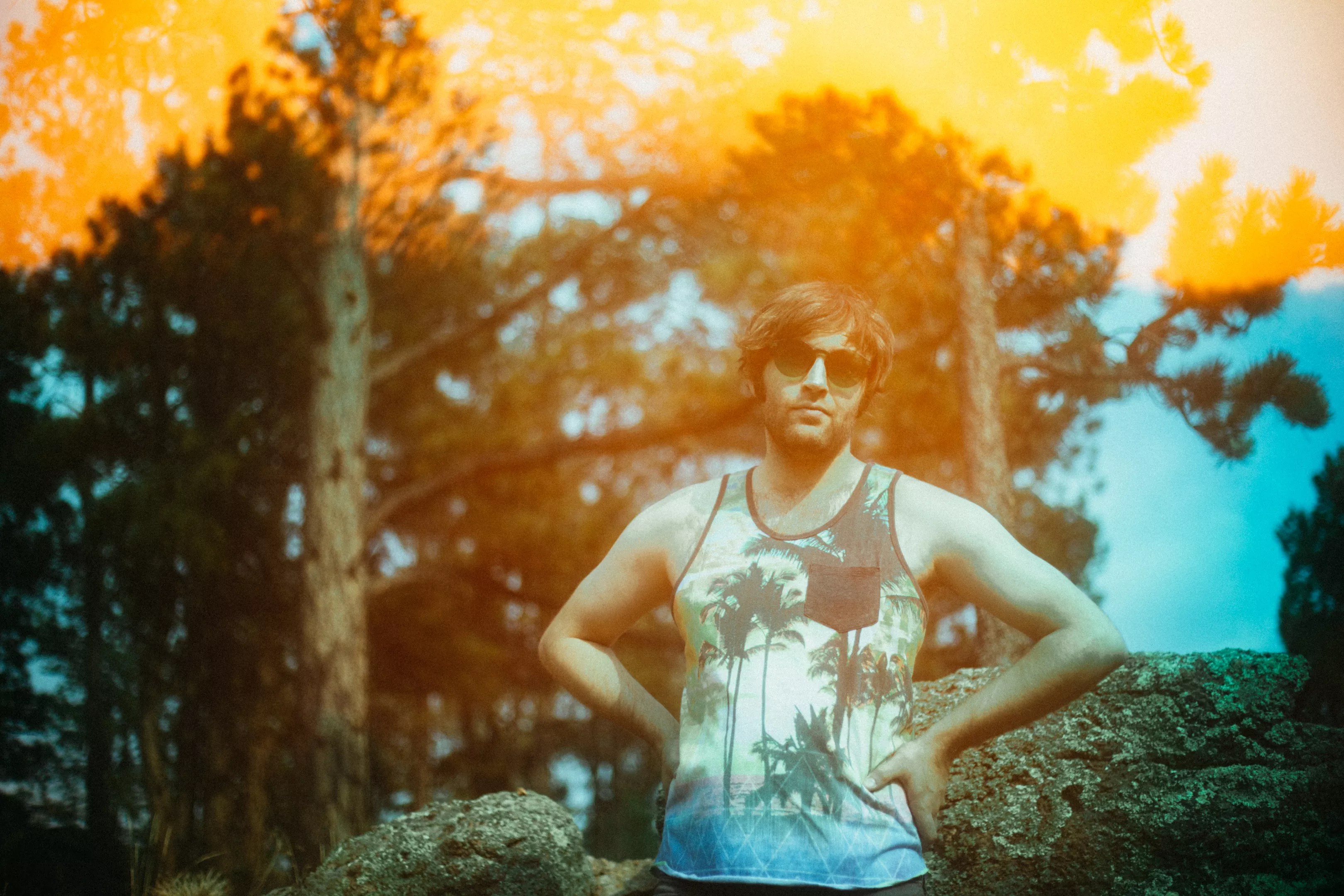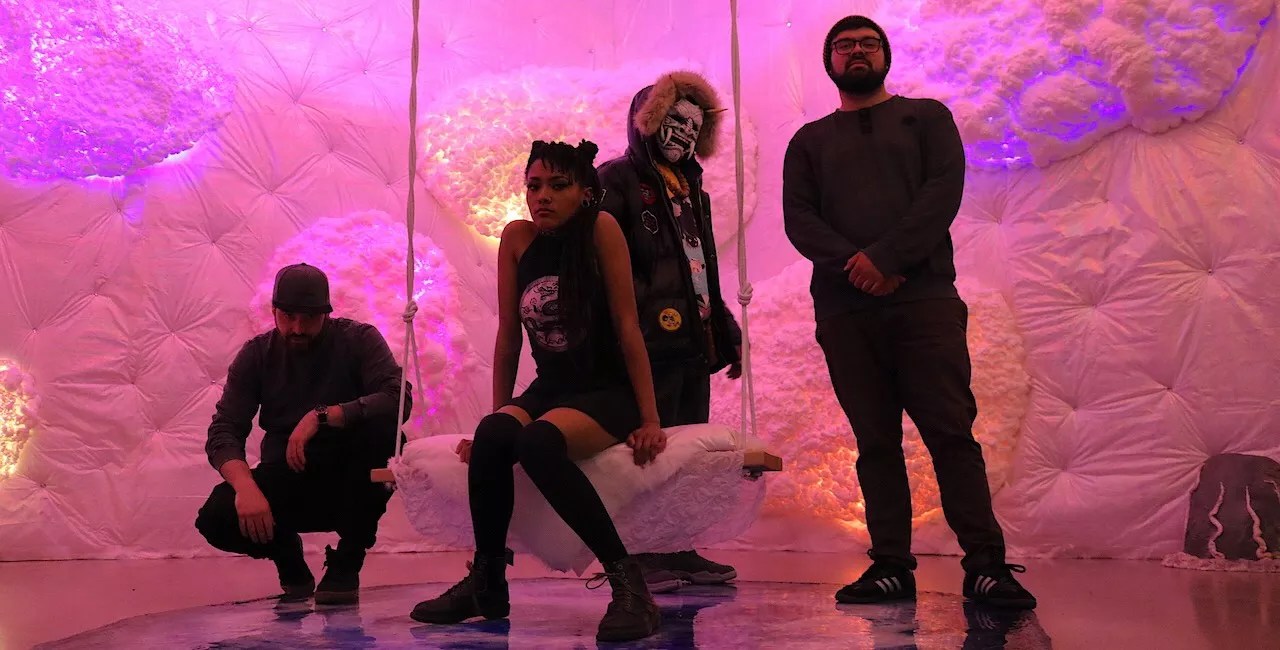
Julianna Photography

Audio By Carbonatix
A promoter who has dedicated his young life to championing musicians in Denver and beyond, Kyle Hartman is excited about the coronavirus vaccines. He hopes that within the next year, they allow him to get back to cultivating a rich future for independent music at home and beyond.
Hartman books bands for festivals and bars, and he runs his own talent agency, Future Garden, which works on growing an international audience for the artists he represents, almost all of them local. This means that his livelihood is tied to how and when concerts return. Meanwhile, for the past eleven months, he’s been focusing on keeping music alive through the shutdowns and nearly impossible circumstances.
“I have no words,” he says. “This year has been something else.”
Hartman has been a force on the scene for around half a decade, coming of age as a talent buyer at a time when the city was garnering national acclaim as a live-music destination. He got his start running the street team for the Underground Music Showcase and worked his way up to being a talent buyer, taking the reins not long after event-promotion company Two Parts took over the annual summer festival from the Denver Post. He would have booked the 2020 edition – if it had happened.
He also spent nearly a year as a talent buyer for the Lion’s Lair, legacy music promoter Doug Kauffman’s dive bar, and in the past year, he replaced Tony Mason as the talent buyer at the Larimer Lounge, Globe Hall and Lost Lake, venues independently owned and run by AEG Presents Rocky Mountains vice president Scott Campbell and his wife, Gwen Campbell. The Campbells are ebullient about what Hartman is bringing to their clubs, even as they operate at reduced capacity. “He is amazing,” says Scott.
And it’s not just as a talent buyer that Hartman has expanded his reach in the music scene.
Since launching Future Garden in 2019, Hartman has recruited an impressive group of local and national artists he wants to see on the international touring circuit: R&B/pop singer Adiel Mitchell, Cerval, DR3AM C@$T, Fred Fancy, Kainalu, Levi Double U, Neoma, Ramakhandra and ssiigghh. Despite the challenges of 2020, Hartman was able to double his roster. “I’m getting a lot of these artists to the national level: doing booking, management and filling in any role necessary,” he notes. “Future Garden is a collective of artists that synergize with each other.”
But Future Garden is not a record label, nor is it your average band-management company or talent agency. Hartman focuses on supporting independent musicians through an array of projects that they might not be able to pull off on their own, using the collective energy of his artists to prop each other up. “I wanted to play all these little roles for independent artists that a typical agency wouldn’t be able to play or would demand too much,” he explains. Along the way, he ensures that the artists keep the rights to their material and find ways to earn an income from their music. “I feel very strongly about artists owning their own work,” he adds. “All the artists I’m working with are independent and don’t have labels. They do everything themselves.”
Locally, Hartman has a very personal mission: helping Denver’s innovative artists of color get national attention. “It’s been very white-male-dominated,” he says of Denver’s music scene. “Even though I’m a white male, it’s not the kind of music I like. I feel like Denver has a really diverse music scene. I see a lot of these artists, and they can be playing nationally and internationally. There’s this barrier to help them get there, and I want to help them push through that.”
COVID-19 only made those barriers higher, yet Hartman is impressed with how his artists have done.

Neoma is a rising star in the Denver music scene.
Julianna Photography
He points to his work with Neoma, an Ecuadorian pop star who moved to Denver a couple of years back. After 2020 showcases at Treefort and SXSW fell apart, she shifted toward releasing singles with Ecuadorian artists and growing her Spotify fan base. She has a new album in the works, too, this time recording with a full band.
“She was going to blow up,” Hartman says. “With COVID, it paused that for a minute. … I feel like she is positioned where she’s going to get to an international level next year.”
Wisconsin-based Kainalu, the multi-instrumental funk project of Trent Prall, has already seen some success online, and Hartman hopes he can build on that momentum to turn the artist into an international touring sensation. “One of his songs is almost at a million plays,” Hartman points out. “He has 80,000 listeners. We’re getting ready to take him to that bigger level. He could be touring internationally in a year or so, COVID dependent. Acts like that are already on that trajectory; I’m stepping in to help them where they need support.”
Denver’s Ramakhandra, which dropped a stunning self-titled debut album this past summer, has another record in the works, and all of the other local acts Hartman works with have new releases scheduled to drop soon. “It’s such a fertile ground for music,” he says. “I feel like music in Colorado has really developed over the last couple of years, where I see it being a music city in the same way that Austin or L.A. is.” Even so, he notes that Denver lacks the infrastructure that would support an artist’s career beyond live concerts: music labels, publishing companies, entertainment attorneys and more.

Ramakhandra is part of Future Garden.
1ne
“We have Red Rocks and great venues and a cohesive music community that’s supportive of each other,” he continues, while adding that that support can sometimes keep people from holding each other to higher standards. “It’s great grounds to try anything out as a musician. I think that’s a huge gift, where people are willing to check it out. … Artists can use Colorado as a place to develop their art.”
The future of live-music venues in Colorado and beyond is not guaranteed, of course. Hartman worries that many of the smaller independent clubs that usually incubate rising artists will be closing permanently in the months to come, despite new relief measures like the Save Our Stages Act. Even so, he respects the government’s decisions to shut down or limit capacity at venues when that seemed like the safest thing to do. “I want music back so badly, but we can’t sacrifice people’s health for that,” he says. “I’m hopeful it comes back as strong as it was before.”
Still, he acknowledges that the devastating effect of the pandemic on the music-industry economy will last for years. With so many venues on the brink, leaving fewer places willing to give new talent a chance, he fears that some artists will give up on their careers and that musical innovation could come to a standstill.
“My biggest worry moving forward for smaller acts is if a lot of these venues go out of business, it’s going to be harder to tour at a smaller level,” he says. “It’s going to be very saturated at first with all of the artists who have put off tours. How are new artists going to find space in that?”
Hartman’s here to help. “I don’t want to see a lost generation of musicians,” he concludes.
Find out more at the Future Garden website.